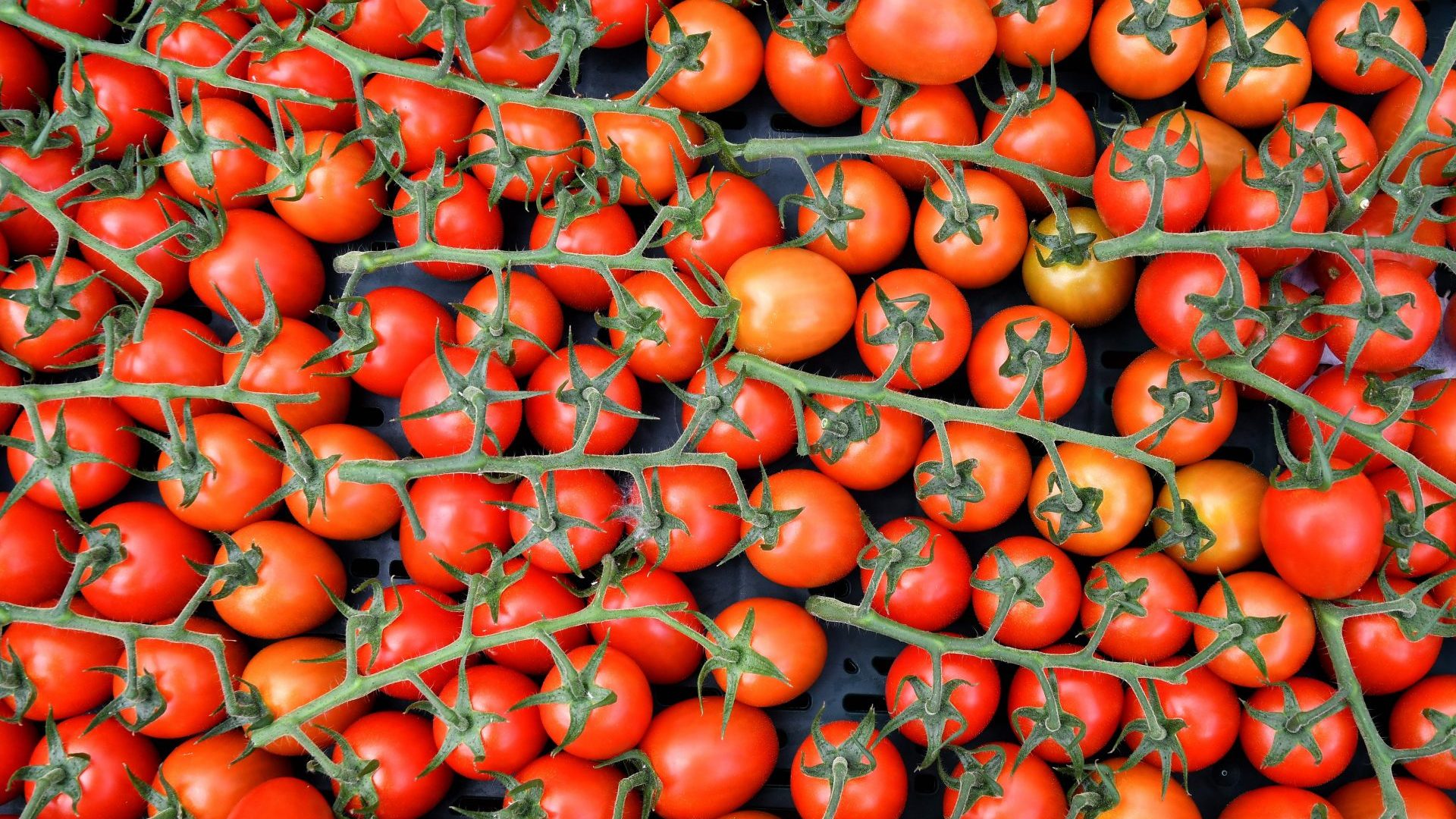A recent shimmy into France reminded me of what tomatoes should taste like. At a casual lunch at a château just outside Saint-Émilion, before me appeared a plate of tomatoes sliced thinly: some of light red, others of dark, all swimming in their own umami-laden juices.
These tomatoes were only lightly seasoned, the salt drawing out the liquid – fortifying it – and with slices of gently pickled onion, firm green olives and a scattering of herbs.
“Where did you find these?” I asked the cook, struggling to remember the last time I had eaten quite such good tomatoes. “The market, of course”, came the cook’s reply. Naturally.
Almost at the same time I got a text message from my mum, who had been drinking quite a lot of rosé in Provence, with a photograph of a beefsteak tomato sitting on the corner of an old wooden table. “These are so delicious btw,” she wrote, before retiring to her own salad.
British tomatoes can be good. I used to love the cherry tomatoes my grandmother grew in her greenhouse. Elegant and earthy. She would slice them into halves and serve them with crumbly blocks of cheddar and white farmhouse bread. Was I in some sort of postwar novel set on a small but profitable farm? Quite possibly.
Then there are producers and suppliers such as Flourish and Natoora, not to mention Isle of Wight tomatoes, which manage to turn out fairly bulbous delights. The fact remains: France (and Italy) are unsurpassed.
And in Britain, to source fine tomatoes is a burden. It is a sad state of affairs and requires logistics and hefty spending; on the continent, the process is far easier.
By the way, this is all ignoring seasonality – we know the best tomatoes are the preserve of summer. Both France and Italy have warmer climates to their benefit. Tomatoes need sunshine to flourish and the period in which we might source proper homegrown varieties is squeezed.
But mostly it is that in recent decades, French and Spanish consumers have maintained that taste must come above all else. Where here shoppers have demanded tomatoes be less irregular in shape, perfectly round and bright red – uniform, singular, unromantic, never mind that some might be bought “on the vine”, which is a lot of marketing bollocks.
On the continent they are mismatched, a patchwork of colours, and often peculiar in form. Sizes range, there are blemishes and they are erratic. Even in supermarkets, decent tomatoes can be found. And at the markets, in food stalls and in restaurants, they are tender and emit a potent, rich smell like no other.
The tomatoes I had at lunch outside Saint-Émilion balanced acidity and sweetness perfectly. There was that clattering smack on the top of the mouth before the sugar took over, whizzing about with olive oil (another thing, but another day). Pockets of vinegar from the onions moved the conversation along before lighter moments to pause and reflect with an olive.
Little is better than slices of beefsteak tomatoes (too rarely seen in the UK today) sliced roughly and sprinkled with salt. Nothing else is required, save perhaps some white bloomer to mop up the juices. They are rich and filling, a protagonist.
If you happen to come across coeur de pigeon (pigeon heart) tomatoes available to buy loose here in Britain, please email me. They are a distinct and lovable heirloom variety known for their pointed tip and their vibrancy, elegant and tangy. I like to crush them up and put them on warm toast with a generous application of salt and pepper.
It is these small facets of culinary life in Britain that grate. Supermarkets here have been given carte blanche and it has only proved detrimental – and our difficulties with the flavour of tomatoes highlights our bumbling food system.
For now, all we might do is remember to never, ever store tomatoes in the fridge. And, so long as money allows, to enjoy the farmers’ markets this summer as regularly as possible.
To find delicious tomatoes in Britain feels extra special. And brings hope. Much as there is around us generally at the moment.




